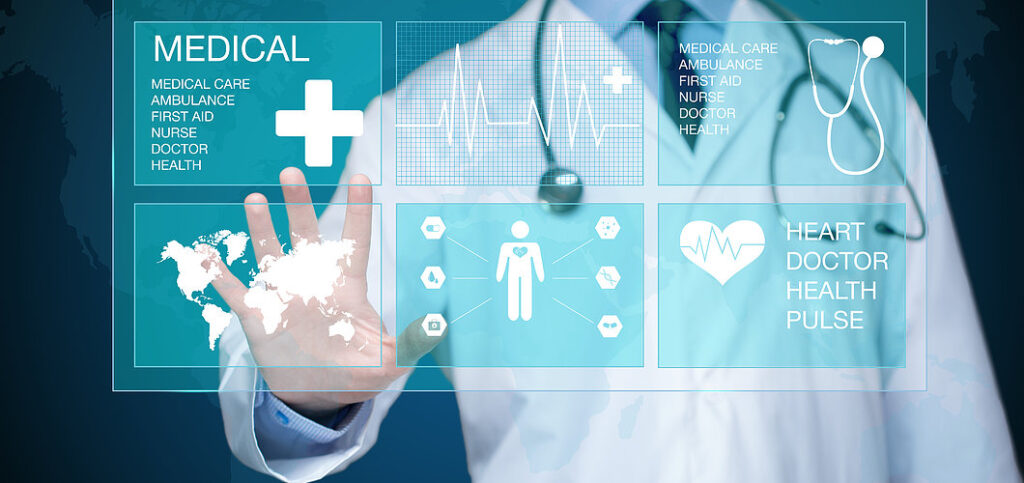
Customize patient experiences with health management software
By analyzing patient data, healthcare providers can identify specific demographics, preferences and behaviors that allow them to adjust their communication and services accordingly. This enables customized messages and content that resonate with each individual, increasing the chances of a positive response.
By sending reminders for appointments, wellness checks or prescription refills, providers can ensure patients receive continuous care and are less likely to switch to another healthcare facility.
Enhanced patient engagement with patient manager software
Health care management software allows healthcare providers to send personalized messages, appointment reminders and follow-up care instructions to patients. Personalized communication helps in building a stronger patient-provider relationship.
Procify360, our hospital administration software comes with online appointment scheduling capabilities, allowing patients to book appointments conveniently. This feature reduces wait times, simplifies the scheduling process and enhances patient satisfaction.
Hospital facility management software automates the collection of patient feedback and enables healthcare providers to analyze patient satisfaction levels, identify areas for improvement and make necessary adjustments to enhance patient engagement and satisfaction.
Accelerate administrative tasks with hospital administration software
Effective communication with hospital facility management software
Monitoring patient profile with patient relationship management software
The patient data management system can offer detailed patient profiles that include medical history, treatment plans and real-time health data. By utilizing this wealth of information, healthcare professionals can gain valuable insights into individual patient needs and preferences.
Through personalized care plans according to patient requirements, medical practitioners can improve treatment efficacy and patient satisfaction. The ability to track patient progress over time allows for timely adjustments to treatment strategies and results in positive health outcomes.
Efficient care coordination with health record management system
By continuously monitoring patient data, these systems can alert healthcare providers to any deviations from the norm, enabling timely intervention and prevention of complications. Through early detection and proactive management of Procify360, the patient crm can minimize the adverse outcomes and improve patient safety and well-being.
In complex healthcare settings, effective care coordination is critical to ensure the transitions between different healthcare providers and facilities. Our smart hospital management system enable the sharing of patient information across various healthcare entities, promoting continuity of care and reducing the risk of medical errors.
Impact of smart hospital management system in medical industry

Enhanced follow-up
Patient data management system can automate follow-up messages after appointments, surgeries or procedures, ensuring patients are informed about post-care instructions and recovery.
By offering regular check-ins and follow-up visits, healthcare CRM systems can contribute to better disease management. Analyzing the feedback, healthcare organizations can identify areas for improvement and their follow-up approaches to better meet patients expectations.
Preventive care initiatives
Hospital software systems can send out reminders for vaccinations, screenings or routine check-ups that help patients to stay on top of their health and potentially prevent more serious conditions.
By Utilizing the data analytics capabilities to evaluate patient populations and identify trends related to specific health conditions or risk factors. By using this data, they are able to develop targeted preventive care campaigns and initiatives that address the specific needs of different patient groups.
Chronic disease management
Medical inventory software can provide consistent communication with the patients with chronic conditions those require ongoing support and monitor their progress and offering guidance and improving their quality of life.
Benefit of using healthcare crm solutions

1. Workflow Efficiency
Automation of tasks can lead to improved workflow efficiency that reduces administrative burdens and allows healthcare providers to focus more on patient care.
2. Better Revenue Management
Health crm can help in tracking and managing revenue streams, including billing, claims processing and insurance reimbursement, resulting in improved financial management.
3. Patient Feedback and Satisfaction
Healthcare CRM solutions can enable the collection of patient feedback which can be used to make improvements in service quality and patient satisfaction.
4. Integration with EHR
CRM in healthcare industry can integrate with Electronic Health Records and are able to create easy flow of information between front-office and clinical systems.
5. Population Health Management
Healthcare CRM software can manage the health of patient populations, identify high-risk patients, and implement preventive measures to improve overall health outcomes.
6. Security
Healthcare CRM systems are designed to meet regulatory compliance standards that help to protect patient privacy and ensure data security.
7. Marketing and Outreach
Healthcare management software can assist in targeted marketing and outreach efforts. They can identify potential patients, track the success of marketing campaigns and personalize content to attract and retain patients.
Conclusion
Healthcare CRM systems have transformed the way healthcare is delivered and managed. With personalized care plans, workflow automation and a focus on data-driven decision-making, healthcare CRM systems are helping patients to receive the best possible care, ultimately leading to better health and well-being. As the healthcare industry continues to evolve, the role of CRM systems in monitoring and improving patient outcomes will only become more critical. Adopting these strategies is crucial for staying competitive and ensuring patient-centric care in today’s rapidly evolving healthcare landscape.

